After being elected as General Secretary of the 13th Party Central Committee at the Party Central Committee Conference on August 3, 2024, General Secretary and President To Lam gave important directives in various fields.
Specifically, through three recent articles such as "Determination to build a strong Party, a prosperous, democratic, fair and civilized Vietnam" on August 4; "Digital transformation - An important driving force for developing productive forces, perfecting production relations to bring the country into a new era" on September 2 and "Continuing to innovate the Party's leadership and governance methods, an urgent requirement of the new revolutionary stage" on September 16, General Secretary and President To Lam often mentioned the concepts of "new starting point", "new era", "era of the Vietnamese nation's rise".
Assessing the opportunities, advantages as well as difficulties and challenges in the domestic, regional and world situations, our Party, headed by General Secretary To Lam, affirmed: "The country is facing a new historical moment, a new era, an era of national growth. The requirement to strongly innovate leadership methods, improve leadership capacity and governing capacity to continue to move the nation forward is urgent."
In particular, this is also a major orientation agreed upon by the 10th Central Conference in the draft documents submitted to the 14th Party Congress.
Accompanying the country into the new era, VietNamNet Newspaper opens the forum "New Era of the Nation", in order to bring articles, voices, and comments from scholars, intellectuals, and readers near and far about the path and ways of the Vietnamese people's rise...
Innovation is considered the core driving force for Vietnam to escape the middle-income trap and reach a new era for the nation and people. Possessing the potential of a young workforce with a passion for technology, Vietnam is facing a great opportunity to become an important link in the global innovation ecosystem.
In an interview with VietNamNet reporter, Dr. Vo Xuan Hoai, Deputy Director of the National Innovation Center (NIC, Ministry of Planning and Investment), shared his in-depth assessments of the needs, current situation and orientation for human resource development serving innovation in Vietnam.
He also shared his perspective on how to create mechanisms to create conditions to retain talented people and attract talent back to the country.
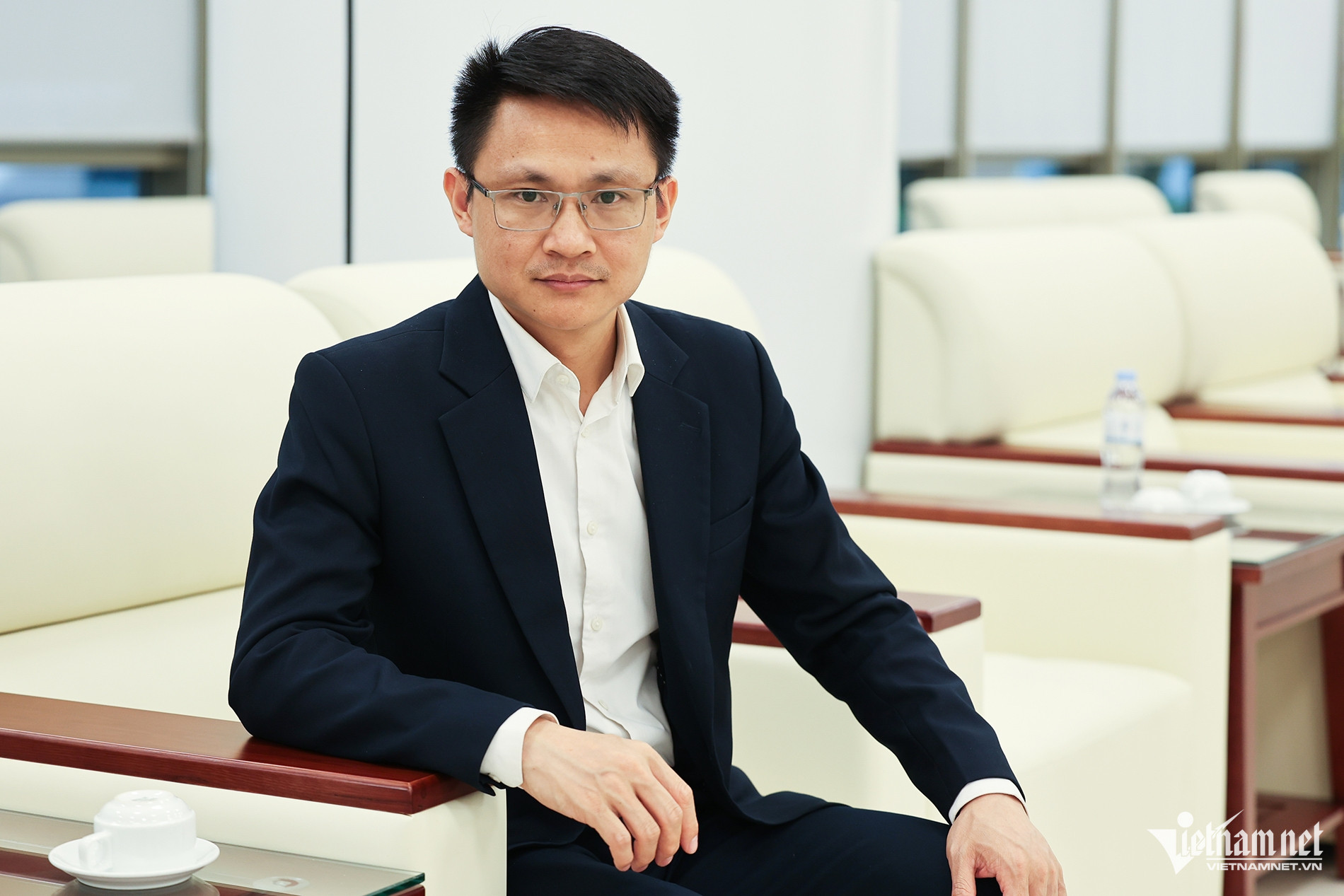
How do you evaluate the needs and development level of human resources for innovation in Vietnam?
Dr. Vo Xuan Hoai: According to the Socio-Economic Development Strategy 2021-2030, human resources are one of the three breakthroughs for sustainable economic development. Not only are we in short supply, but developed countries such as Japan, Korea, the United States and Europe also want high-quality human resources.
The demand for high-quality human resources to serve innovation and high-tech industries is huge, both domestically and in developed countries. Recently emerging industries such as semiconductors, artificial intelligence, biotechnology, clean energy, etc. are currently in dire need of high-quality human resources.
Specifically, the semiconductor industry is expected to need one million workers by 2030, while the current capacity of countries is still insufficient and limited compared to the demand. Developed countries are aging. The number of engineers participating in this industry needs to be young, healthy, talented and agile.
Vietnam currently has the advantage of having a young population, in the golden population period, capable of studying technical fields. Therefore, Vietnam can participate in the innovation story at home as well as in international markets.
In terms of ability, young Vietnamese people have a passion for STEM, engineering, and mathematics. This helps the young generation of Vietnam to be able to meet the requirements of the Fourth Industrial Revolution, as well as innovation activities in businesses and organizations.
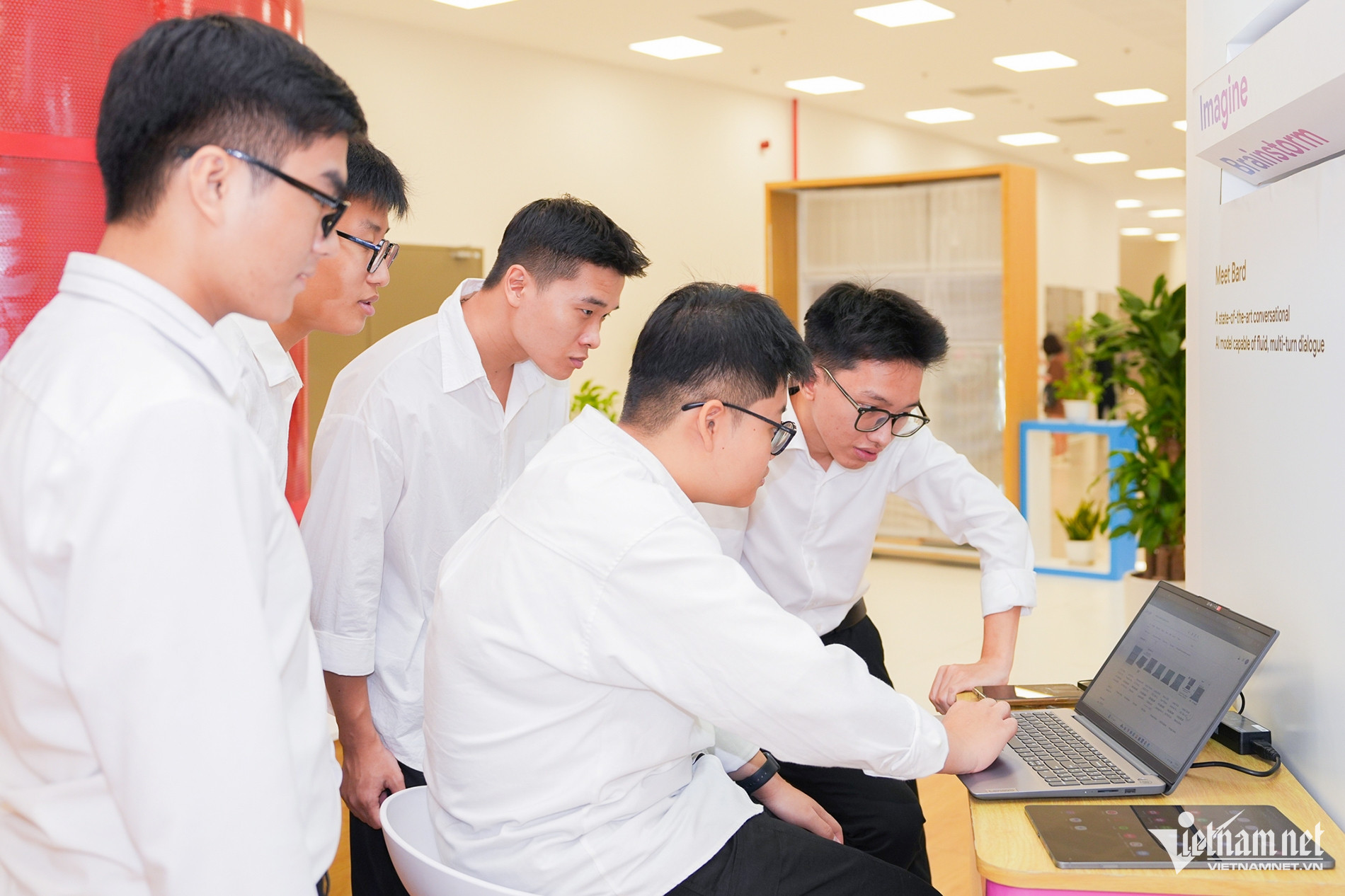
The proof is that recently, Vietnam has had many young engineers and talented researchers who, after being trained domestically, have studied and started their businesses abroad and have achieved success.
For example, Dr. Loi Nguyen, from a scientist, founded a company that was acquired by Marvell, the world's leading chip design corporation, for billions of dollars. There are many outstanding Vietnamese people in the world such as Le Viet Quoc, considered the brain of Google, Hung Tran - GotIT, Thuc Vu - Viet AI, etc.
Many Vietnamese people have excellent abilities. We can absolutely participate in new technology industries, especially semiconductors and AI. The potential of Vietnamese people is very latent, the important thing is how to exploit their abilities.
We have been talking a lot about exporting highly skilled labor recently. Is there a certain change in labor resources that makes us no longer afraid of “brain drain”?
Dr. Vo Xuan Hoai: If young talents, engineers or young students of Vietnam have the opportunity to study abroad and then be recruited by large technology corporations in the world, it is a good thing for them and for the country.
When participating in the reality of enterprises and business activities in developed countries, they will be able to absorb and master some new technologies. Cooperation on that basis will bring higher benefits than returning to Vietnam immediately after graduation.
During their work in the host country, they will also have relationships with colleagues and related businesses. Those relationships will also bring many benefits to Vietnam.
This shows that not only returning to Vietnam can be considered helping the country. In the current context, thanks to digital technology, we can work anywhere, in any country.
Now and in the future, we will always lack human resources. However, the fact that young people graduate and work abroad is not a “brain drain” but a necessary process to train a team of engineers and young talents. After accumulating experience, they can return to Vietnam to develop the country, or contribute to research in Vietnam.
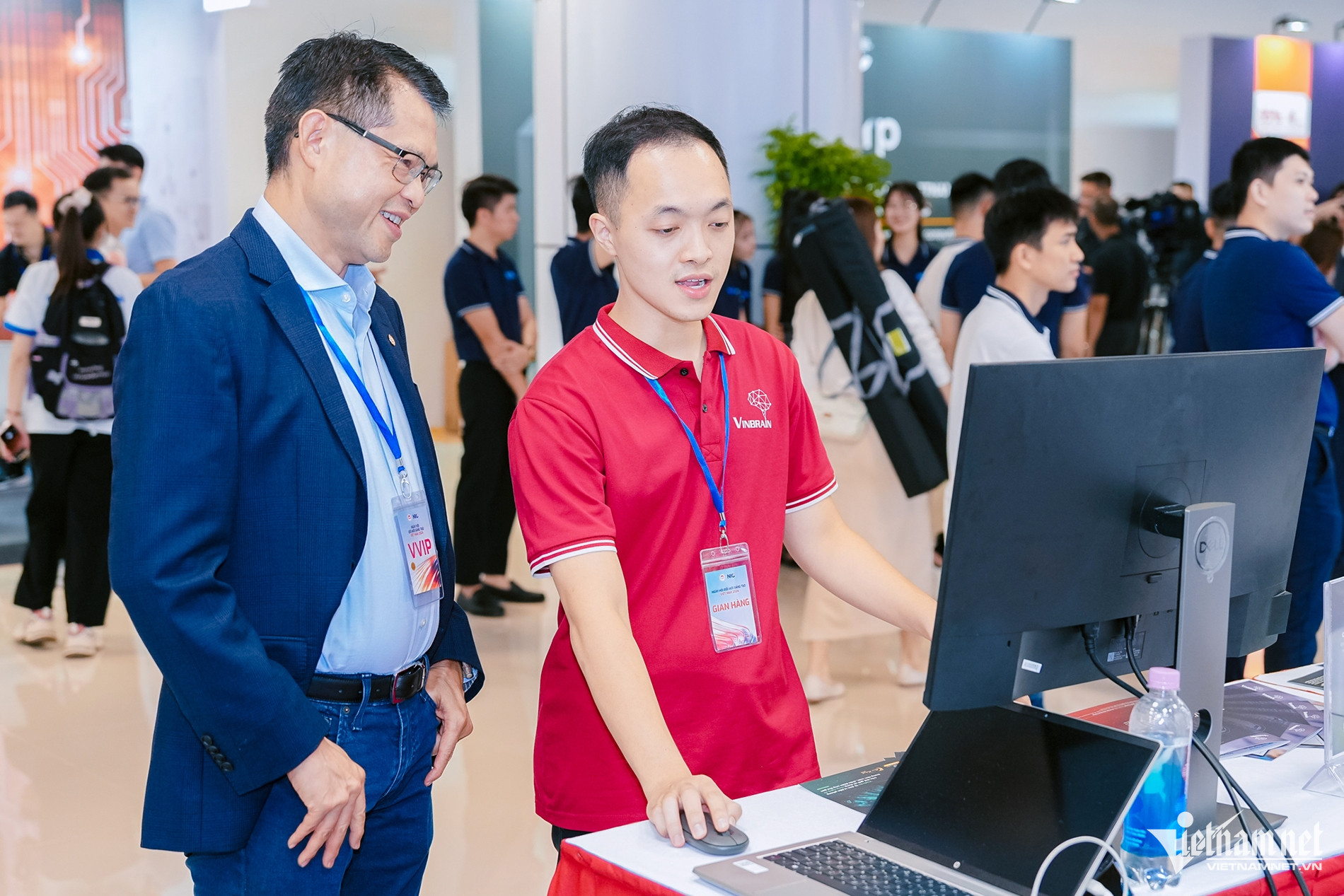
How do you evaluate the recent trend of Vietnamese experts returning to contribute to the country?
Dr. Vo Xuan Hoai: The contributions of overseas Vietnamese to the domestic community are an inevitable and objective trend.
Not only Vietnamese people, experience shows that even Koreans, Japanese people, and Chinese people, after studying, working and becoming famous in their host countries, always tend to return to their country and participate in developing the country's economic sectors and fields.
In Vietnam, this is also happening. It is a very good trend for Vietnam. This is the stage where we need to have deep and close participation from the community of Vietnamese experts and intellectuals abroad.
Since 2018, Minister of Planning and Investment Nguyen Chi Dung has identified that the intellectual force, experts, and Vietnamese businessmen abroad will be the pillars and core levers to promote economic development.
This force also helps Vietnam move into a new era, as General Secretary and President To Lam said, which is the era of national growth. That is, with these people, they will be the core, mastering and bringing technology to Vietnam to help the country develop.
On that basis, the Ministry of Planning and Investment established the Vietnam Innovation Network. After 5 years of establishing the National Innovation Center, we have 10 networks in 22 countries and territories with more than 2,000 members and are expected to have 10,000 members by 2030.
During his recent working trip, General Secretary and President To Lam met with members of the Vietnam Innovation Network in the United States. The General Secretary was surprised that many Vietnamese people in the United States are now very successful, not in traditional industries but in new technology industries, the most advanced technologies in the world.
That is the basis for us to be confident and support young intellectuals, helping them have the opportunity to study and work abroad. In the future, they will cooperate with us to develop the economy and the country.
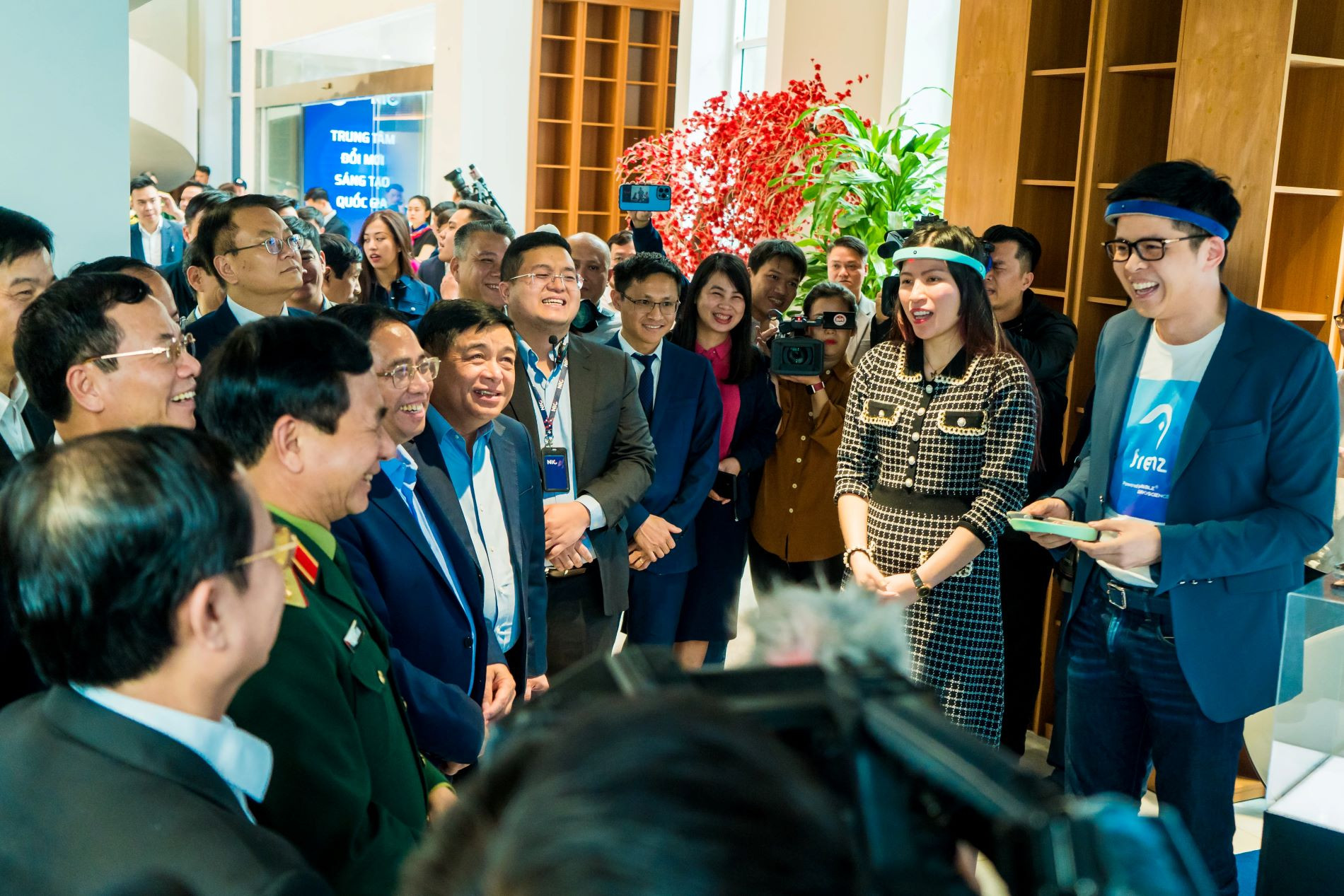
What mechanisms have we had, are having and will have to create conditions to retain talented people and attract talents to return home to contribute to Vietnam?
Dr. Vo Xuan Hoai: Currently, there are many policies and guidelines of the Party and the State that have been specified by the Government through decrees, decisions, and directives. However, in order to effectively apply policies to attract talented Vietnamese people working abroad, we have not yet had a result that can be considered successful.
During the process of working with members of the Vietnam Innovation Network in other countries, many people commented that Vietnam really wants their participation. However, although many people are very interested and want to join, they still do not have a favorable environment to fully develop their capacity. That is very regrettable.
I believe that in the coming time, we will have many improvements in the working environment and social welfare mechanisms to attract talent.
Vietnamese talents are eager to contribute. They do not require too much in terms of benefits. However, they also need to be guaranteed a basic standard of living to feel secure in their work and contribution.
We hope that the Vietnamese Government will have more open and favorable policies to promote innovation activities in Vietnam. These could be policies on tax, personal income tax, and policies related to the issuance of work permits.
When returning to Vietnam to participate in state organizations, many talented Vietnamese people have qualifications, but lack the required certificates and degrees, while abroad they do not need those documents.
A very talented person, even one who has worked as a director or manager of foreign organizations in developed countries, but when returning to Vietnam, has to work as a specialist and depend on others, they will face a certain barrier.
Should some agencies, especially public service units, have mechanisms to create favorable conditions for talented Vietnamese people to be appointed and participate in management positions when they return to the country, helping them to fully develop their talents?
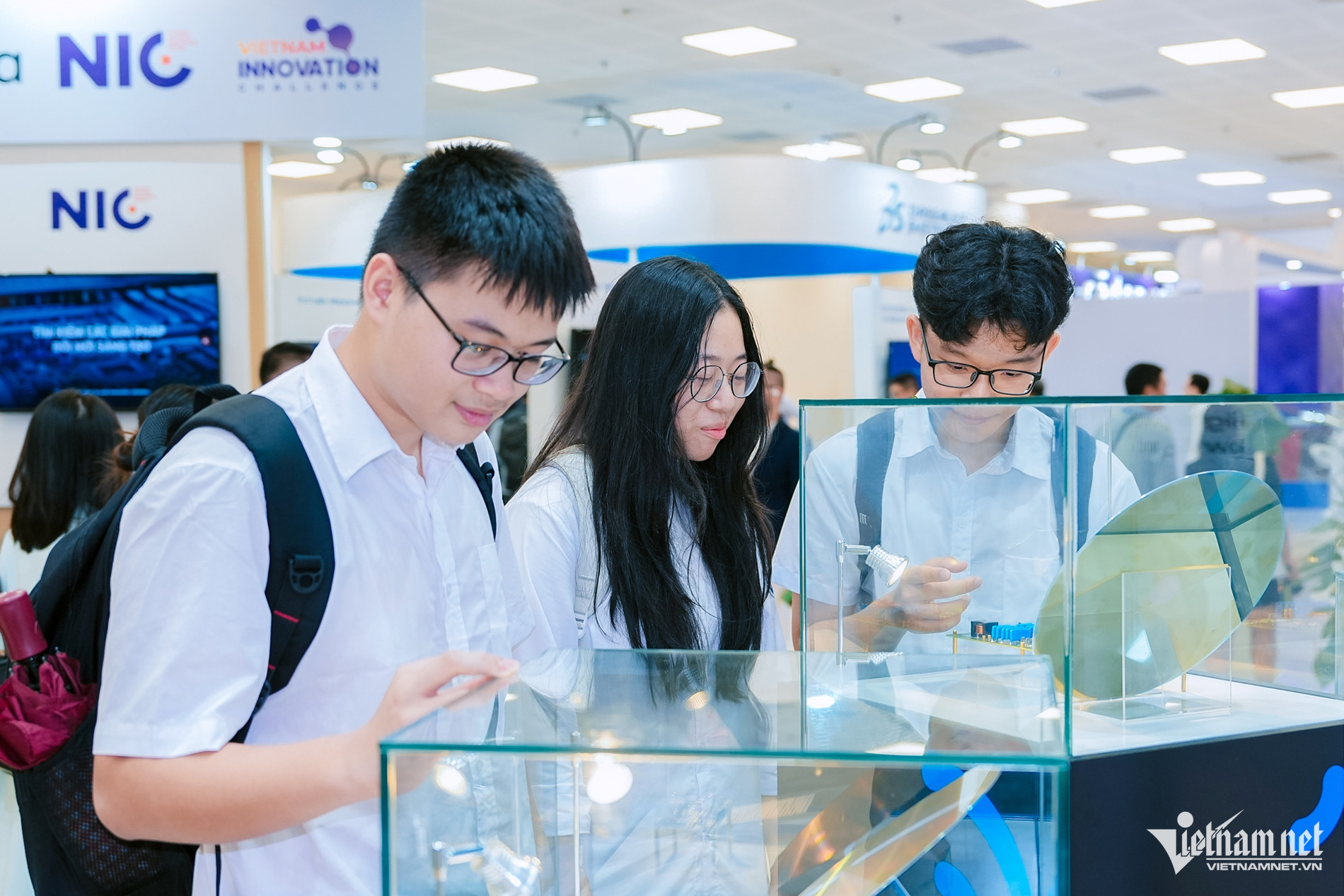
What do we need to do to better connect Vietnam's innovation ecosystem, especially between domestic and foreign talents?
Dr. Vo Xuan Hoai: Through the experience of implementing the Vietnam Innovation Network, the need for coordination to develop new technologies and core technologies is very large. This will contribute to promoting innovation activities in Vietnam.
However, there is a barrier that Vietnam has not yet proposed specific problems. We say that we really need the participation and support of Vietnamese intellectuals abroad, but when asked what specifically is needed, we cannot say.
The State must be the one to propose problems, topics, and specific challenges so that experts, scientists, and members of Innovation Networks can participate in a substantive way to solve national problems.
Domestic enterprises, organizations, and universities also need to propose specific needs and difficulties to find solutions together. However, problems need to be solved in a way that experts who devote their efforts and intelligence must be paid or recognized appropriately. The benefits for both sides must be harmonious.
We do not have an overall view of that. Therefore, experts, especially scientists, find it extremely difficult to participate in state projects.
We simply have too many unnecessary regulations. There are many procedures to do scientific research. This is something that needs to be improved to take advantage of the capacity of Vietnamese experts abroad.
Thank you!
According to Dr. Vo Xuan Hoai, Vietnam is focusing on training high-quality human resources for key industries such as semiconductors, artificial intelligence, clean energy, biotechnology, machine learning, etc.
Recently, based on the direction of the Prime Minister and the Minister of Planning and Investment, the National Innovation Center has coordinated with Google to award 40,000 scholarships for training in AI, machine learning, and data analysis to students of Vietnamese universities and working engineers.
The National Innovation Center has also coordinated with the USAID program and the CHIPS program (CHIPS Act) of the United States to train human resources for innovation, entrepreneurship and the semiconductor industry.
By 2025, we plan to cooperate with the International Technology Innovation and Security (ITSI) Fund, under the US CHIPS Act initiative, to train more than 4,000 engineers in the field of packaging and testing of microchips.
The above actions demonstrate the determination of the Vietnamese Government in developing high-quality human resources to serve the country's innovation.
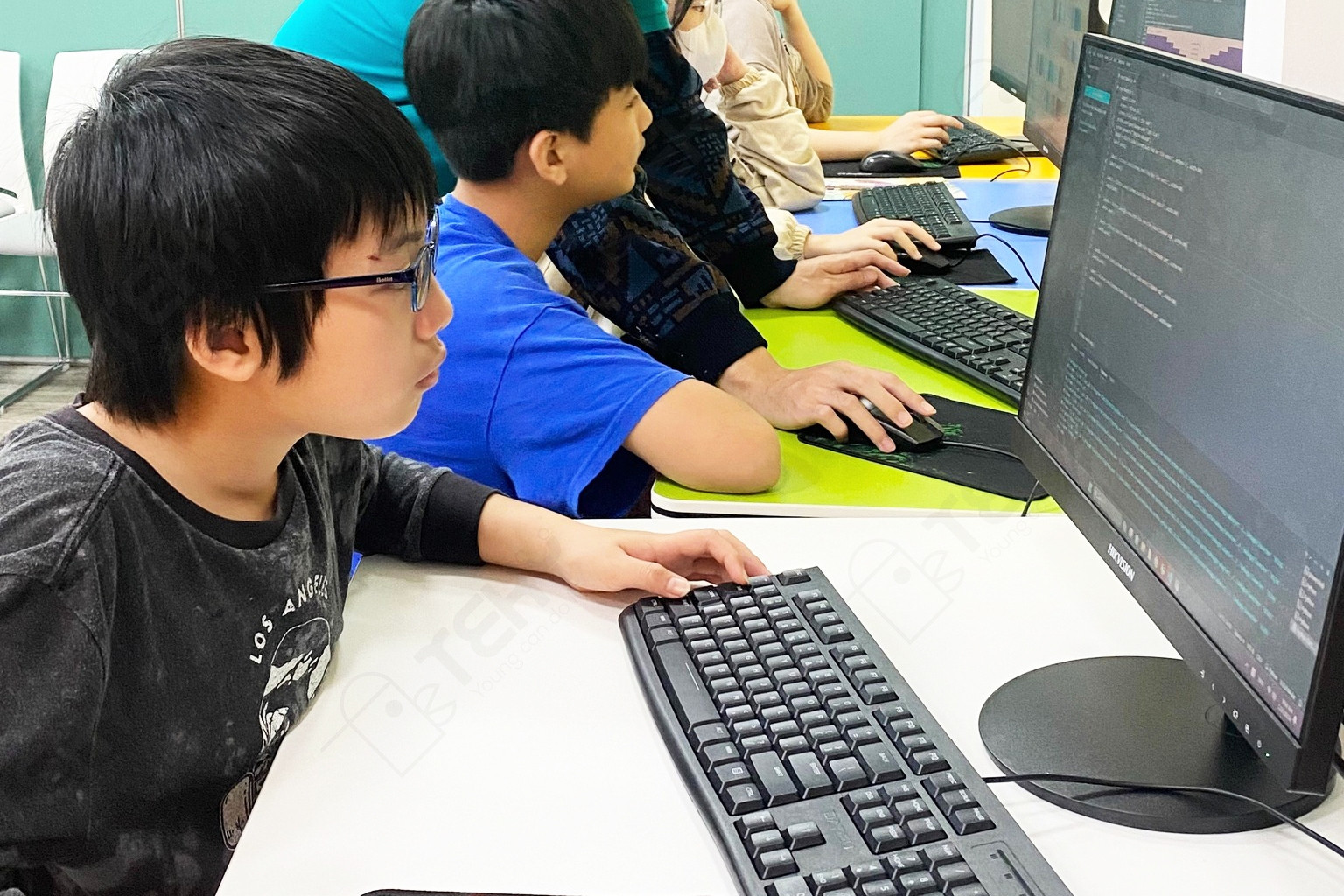
Source: https://vietnamnet.vn/cu-huych-dac-biet-ve-nhan-tai-giup-viet-nam-tien-vao-ky-nguyen-moi-2330392.html
















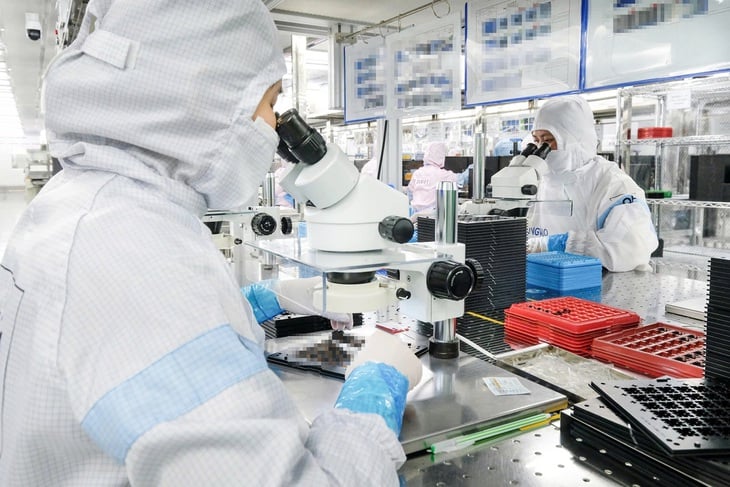

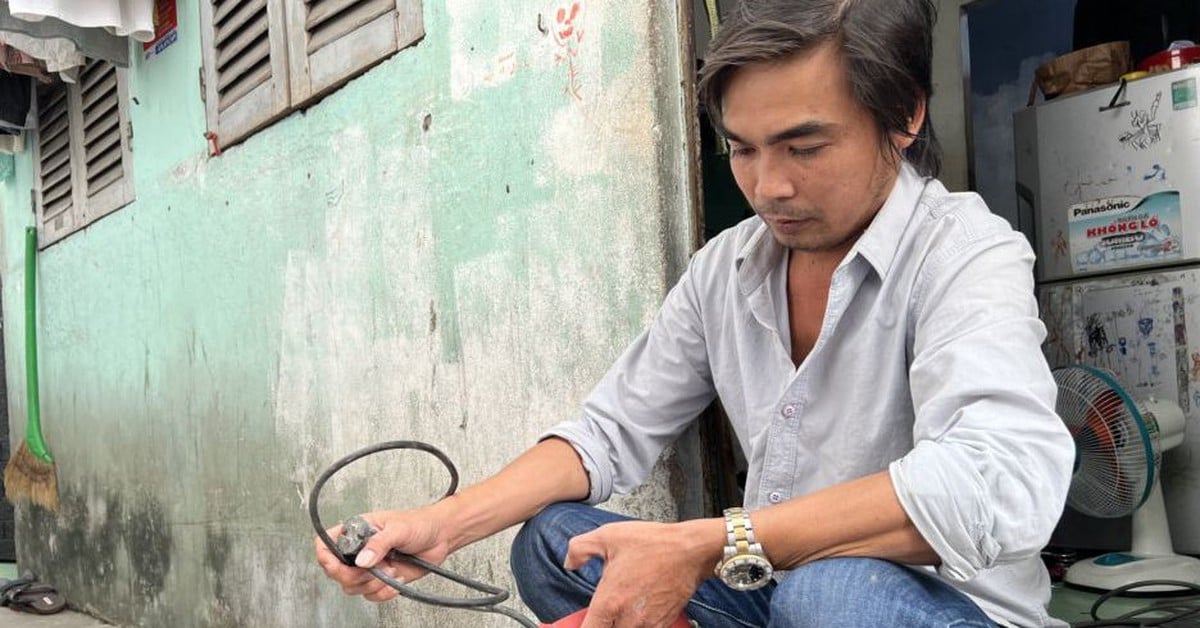








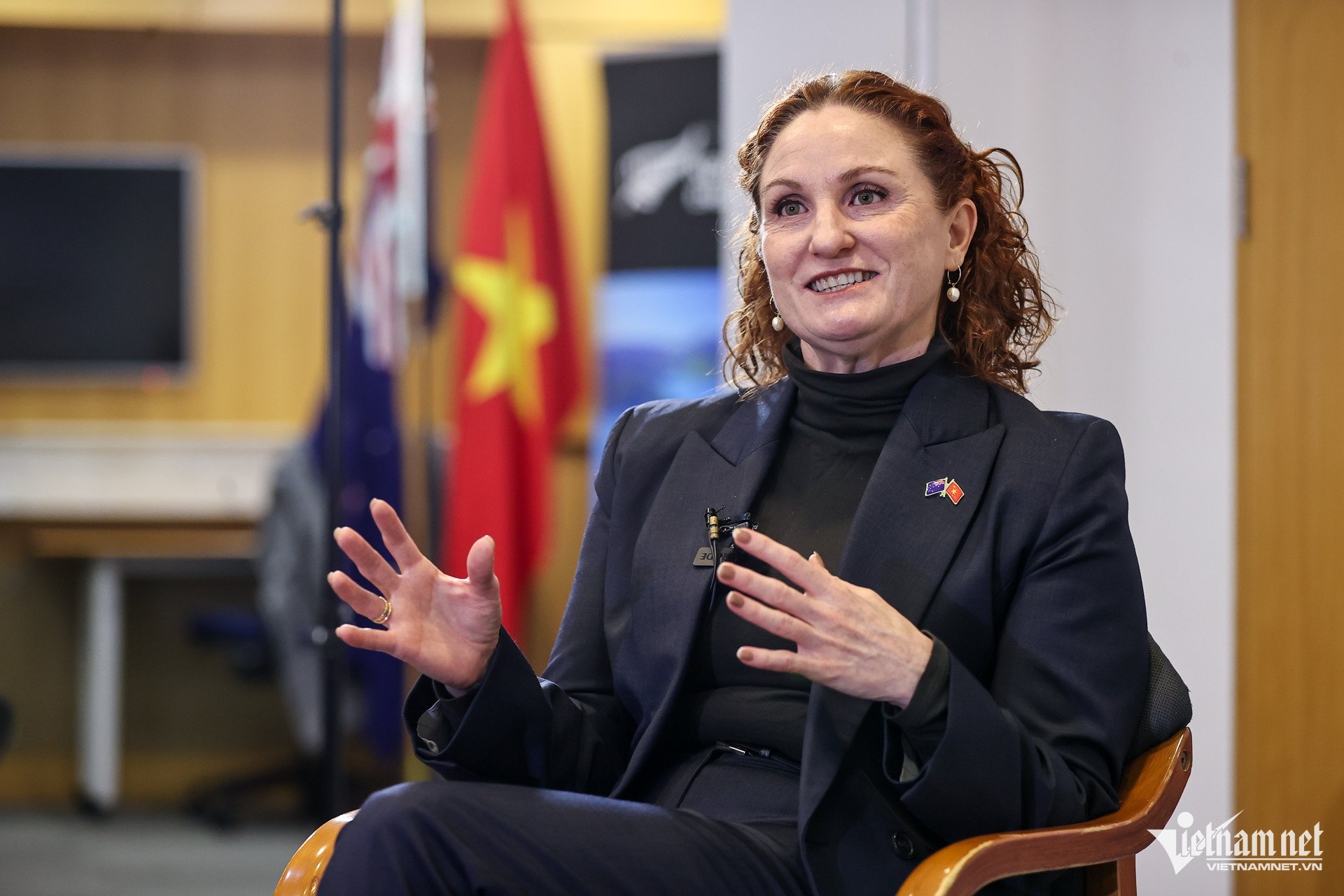





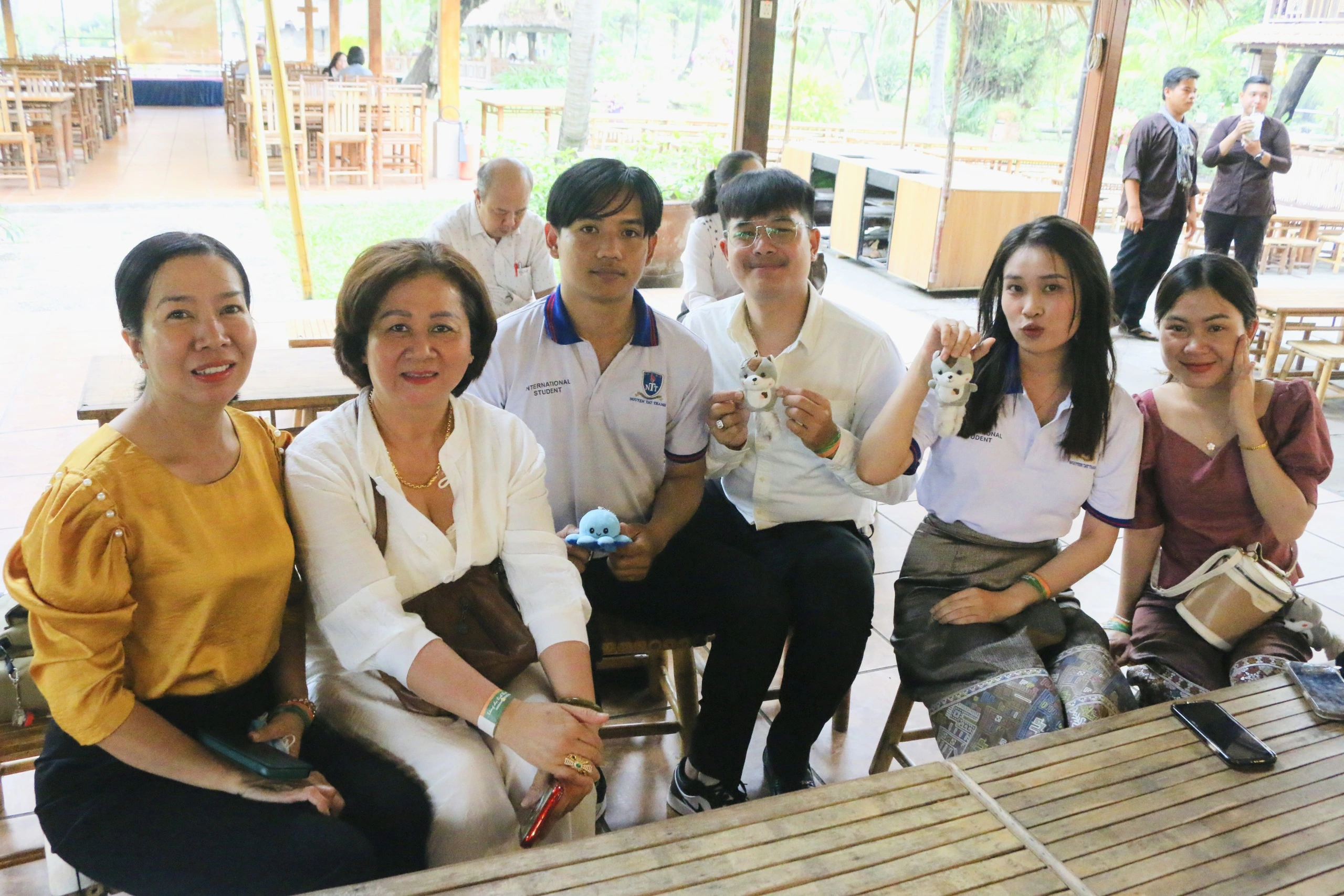

Comment (0)